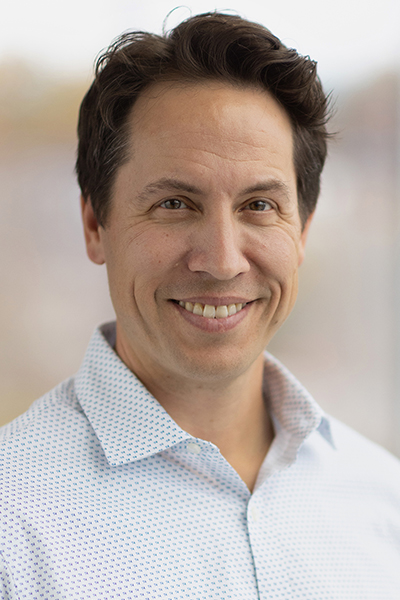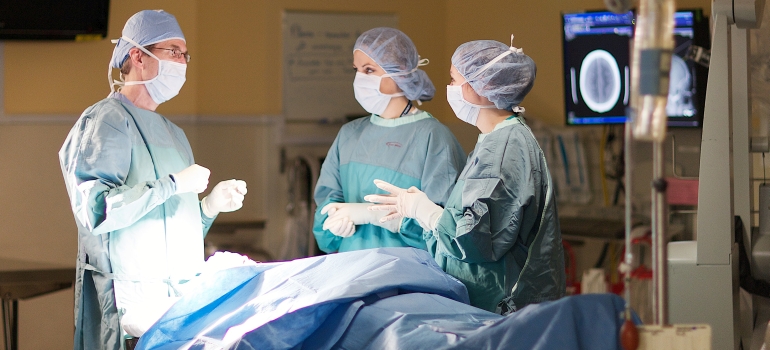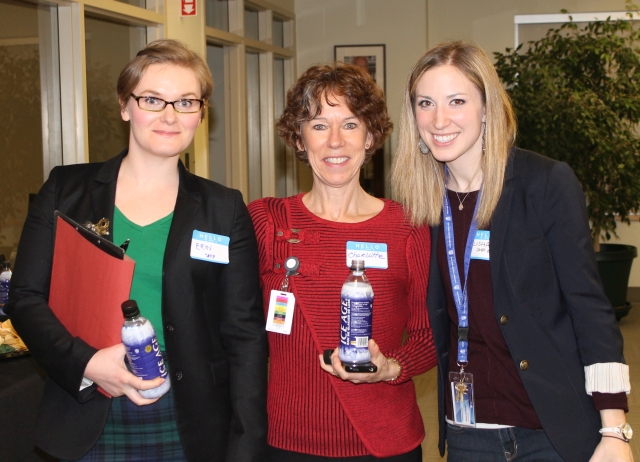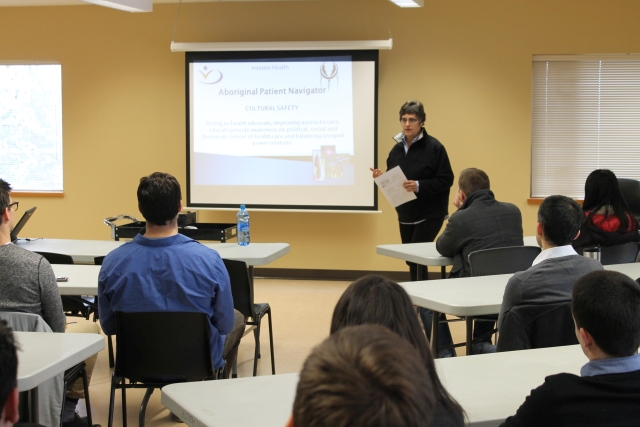
By Patty Wellborn
Photo Credit: Craig Pulsifer
While the learning curve for any profession may be considered steep, students in the UBC Faculty of Medicine’s MD Undergraduate Program have a particularly challenging incline.
Third-year medical student Dianne Valenzuela, however, is thriving under the pressure.
The 26-year-old Valenzuela is currently completing her clinical rotations at Kelowna General Hospital. She and her classmates are part of the inaugural class of the Southern Medical Program (SMP) based at the Okanagan campus, now in just its third year of operation.
After completing a bachelor of arts degree at the Vancouver campus, Valenzuela wasn’t sure exactly what to do after graduation. But she liked the idea of the demands presented by a medical career.
“I never thought I was going to grow up and become a doctor,” she says. “I thought I might become a teacher. But I liked learning and challenging myself, and thought of health as vital for a person to enjoy life to its fullest. So I ended up applying to the Faculty of Medicine.”
In September 2011, Valenzuela entered the Faculty of Medicine, which now admits 288 medical undergraduates annually distributed across four regional medical programs in Vancouver, Kelowna, Victoria, and Prince George. The Vancouver program accommodates 192 students while each regional program hosts smaller cohorts of 32 students respectively.
Although she initially leaned towards completing her medical studies in Vancouver, her regional home, Valenzuela has settled nicely into the smaller community of Kelowna and the bustling routine that accompanies medical school. Last September she started, along with 23 other students, her third year of medical school at Kelowna General Hospital (KGH).
In partnership with Interior Health, the SMP delivers clinical training at KGH, Vernon Jubilee Hospital, Royal Inland Hospital in Kamloops, Kootenay Boundary Regional Hospital in Trail, and numerous other hospitals and clinics. The program has benefited from a continued influx of health professionals joining the program to teach, now surpassing 840 across the region.
“I’m so happy that I am training in Kelowna,” Valenzuela says. “It is a great city and the doctors who are teaching us are highly enthusiastic about the program. All of our facilities on campus and in the hospital are brand new and lend themselves well for learning. ”
She says the SMP provides great learning opportunities and lots of chances for one-on-one interaction with her instructors (known in the medical program as preceptors).
“Almost everybody knows you by name because it is a smaller program. We do our clinical rotation in third year at one hospital and you get to know your preceptors very well. I don’t feel like a number.”
“The doctors are approachable, and they’re eager to help us in deciding which specialty we want to be in by talking about their own experiences back when they were in medical school.”
Valenzuela recalls being the first-assist on an operation during her surgical rotation. She was able to retract exposed tissues, stitch the skin, and even suture a small bleeding vessel.
“I felt I have truly had a direct impact on that patient’s life,” she says, beaming. “That was a striking moment for me, and I will remember it for the rest of my career.”
During third year, SMP students rotate through 11 disciplines of medicine including pediatrics, internal medicine, surgery, psychiatry, obstetrics and gynecology, emergency medicine, orthopedics, ophthalmology, dermatology, anesthesiology, and rural family medicine.
One specialty in particular really resonated with Valenzuela.
In their fourth year, SMP students rotate through different hospitals around B.C. and other provinces, even other countries. That comes with untold student experiences, but Valenzuela plans to spend some of that time doing electives in pediatrics.
“Pediatrics is such an interesting specialty because you get to focus on the entire wellbeing of the child and his or her family,” she says.
While pediatrics has many challenges, she says the simple fact that the patients are so young and at a pivotal stage in their lives drives her to go above the call of duty. And indeed, there are few things as remarkable as holding a brand new baby.
“Children are very genuine. You can be exhausted from the demands of your day but seeing these little patients can be so refreshing.”
While Valenzuela isn’t sure what type of medicine she will eventually practice, Pediatrician and Clinical Assistant Professor Dr. Katharine Smart was happy to share her own love of her specialty with the third-year students.
“My favourite part of my job as a clinical teacher is sharing my passion for pediatrics, and the ultimate payoff is watching students like Dianne make connections with children and families and develop their confidence as clinicians,” says Dr. Smart.
“Dianne has a quiet confidence and a gentle nature that makes it easy for her to gain the trust of the patients she serves. That rapport is the underpinning of the doctor-patient relationship and will serve Dianne well throughout her career.”
After Valenzuela earns her MD degree, she will spend several more years completing a residency program in a specialty of her choosing. But graduation is her next biggest challenge, and as she continues her rotations in Kelowna and the rest of the province, the young doctor-in-training acknowledges that a passion for medicine has been ignited.
“Being in medicine is such a privilege,” she says. “The patients you encounter are at a vulnerable time in their lives and yet there is a certain level of trust that they give you. So I think it is my role as a medical student to do the best I can to learn well and eventually be of service to them as their future physician.”
For more on UBC student Dianne Valenzuela’s story, visit ourstories.ok.ubc.ca.















